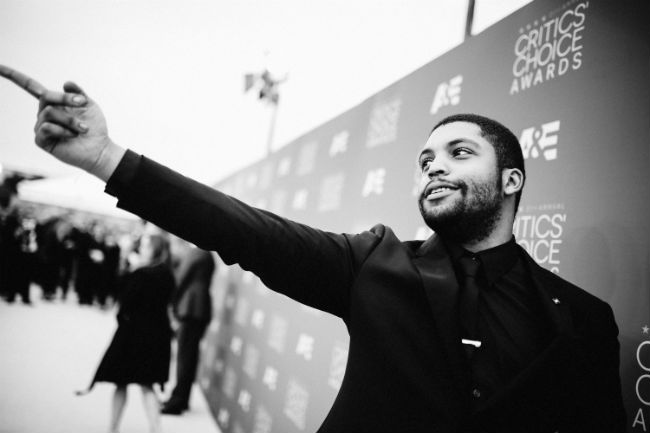
O’Shea Jackson Jr. had a heck of a debut as an actor, playing his father, Ice Cube, in Straight Outta Compton. But the road to portraying his dad was a lot longer and more complicated than you might think. Jackson was kind enough to sit down with us and talk about getting the job, getting a key moment in American history right, and how, exactly, “Bye, Felicia!” wound up in the movie.
I know you’ve done some music in the past; how much did your musical work inform your work on the movie?
My music work is the only reason why my father thought I could do it. I started performing on stage with my father when I was 18. He felt from there that I was the right man for the job. And there was a two-year audition process to prove it.
When you’ve never been in a movie and you’re auditioning to play your dad, you should get a heads up. It was pretty nerve-wracking. It was pretty nauseating, waiting to hear back. At the end of it, we do a chemistry test. I get there and there’s two other Cubes there and three Dres. I immediately let the other Cubes know I was O’Shea Jakson Jr. [Laughs.]
How do you portray the process of making music on film and getting it right?
That was some of my easiest moments. The acting part, that was new to me. But rapping my dad’s songs, I’ve been doing that forever. It was really the fun part of the movie for me. And the guys knew that, that I had the stage experience. They let me quarterback a couple of those performances. It’s something my dad and I will always cherish. When we performed at Skateland, they were like, “We have to perform in front of 500 people!” and I just said “500 people? Easy!”
F. Gary Gray, your director, was actually there for some of what goes on in the movie. Did you ever hear something about how so-and-so was more like this?
Me and my father would speak every day before I went to set. He’d Skype in, let me know what he was thinking at the time. Gary knew that I had that tool. He let me spread my wings on that film. The circle is complete in a way, with my dad giving him his first film, and now he’s directing this.
The shout-out to Friday was a hilarious moment.
It wasn’t in the movie. Gary had mapped out that scene already and something clicked in me. “This chick’s name is Felicia.” I said “Gary, this is a perfect ‘Bye Felicia!’ moment.” It was stupid perfect! He kicked us all out and redid the scene! [Laughs.]
Did you improvise a lot on set?
I would say, every scene, every moment happened. That is truthful. Us as actors, our director has the eat take, where he lets you eat. You give it to him by the book a few times, and then you see what you can add to the scene. There were so many scenes where we could be in the moment and make it real. As soon as the audience sees the thing that reminds them that they’re watching a movie, you’re done, so a lot of that was in the movie.
Even without the family connections, you’re dealing with a pretty intense moment in not just pop culture, but American history. Did you feel any pressure there?
You know, I don’t know what anybody else will tell you, but I’ll tell you the moment where I felt things were getting a little real. Around the time we were shooting the Skateland scene, we had the [Hands Up Don’t Shoot] movement, there was a real moment on set. There was a moment on set where we felt like we should post a picture, but there were so many stipulations, we couldn’t show the set or the costumes or anything. We realized the movie was our post. We had to make sure this message got across. It’s about the countless events that haven’t been accounted for. I’m thankful for the technology we have now, it’s a shield of some sort. But it’s got a lot of holes still.
How do you feel about the Academy Award nominations?
I just really focus on who the film was for. If they don’t feel that our film that has reached enough of a contribution towards film, you know, that’s their opinion. They’re entitled to it. But the people made it the #1 biopic of all time. They made Gray the top director. The people made it a hit.
What I will say, it’s so much bigger than rap music. The music is secondary. The performances have one verse apiece. It’s not our main focus. We made a film with a message, and that’s when you’re really attached to the people. That’s what makes it a classic. I’m glad it’s the people sticking by the film. I appreciate all the love from Twitter. But the Academy will still be there, and we will be too.
Straight Outta Compton is available Tuesday, Jan. 19 on Blu-Ray and DVD from Universal.






